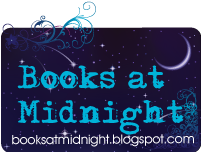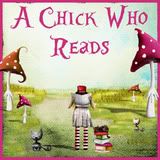
Control over the last great natural resource—the untamed ocean—is the bitterly contested prize in this family drama that pits three brothers, their waterman father, and a generations-old way of life against each other.
Set on fictional Trappe Island in the Chesapeake Bay, the novel revolves around the complex issue of overfishing and the depletion of the blue crab harvest during one summer’s devastating drought. Patriarch “King” Kingsley has continued a time-honored fishing tradition, but by doing his job too well he and other watermen have emptied the bay and destroyed their own livelihoods. Many species have been fished to extinction, others are on the brink, and the island is sinking.
After years of failed attempts to conceive, Gail keeps youngest son Sonny’s infertility—a result of decades of eating from a watershed teeming with pesticide and fertilizer runoff flowing downstream from, among others, her father’s farm—a secret. But she’s convinced that a child would finally get Sonny out from under his father’s thumb.
State-of-the-art computerized nautical technology led them to overcapitalize in the 90s and now their mountain of debt threatens to sink them. When a spectacular blue crab harvest floods the market, driving down the market price, watermen are forced to strike for the first time in their lives. A domino effect puts Gail, a crab picker, out of work. Packinghouses and local restaurants are next, and as the whole island shuts down, creditors come knocking.
Into this conundrum come Don, CEO of a multinational seafood conglomerate, and Peter, an environmental activist. Each brother takes a different, indeed opposite, path to end rampant overfishing and protect the bay he loves. Don tries to push legislation through the statehouse that would corporatize fishing by introducing a commodities-based quota system, but Peter mounts a campaign to stop him.
As president of the powerful Waterman's Association, it's up to King to rally the troops around a unified agenda, but he can't bring himself to endorse either side since it would mean choosing between his sons. He waffles until a splinter group forms, tearing the association in two and destroying its power in the statehouse. As the son who stayed behind and stood to inherit the watershed, Sonny believes he has the most to lose.
As the summer heats up, the depth of their desperate situation unfolds, compounding the already strained relationship between Gail and King, who are locked in a lifelong battle for possession of Sonny.
With no fish left to catch and no way to earn a living, King’s health, damaged by the same pollutants that destroyed Sonny’s fertility, and guilt-stricken over decades of strip-mining the bay, declines. Ill and embittered, King fears losing his hold on Sonny, the very thing he has tried to avoid but unwittingly brought about by unintentionally robbing his son of his inheritance--a healthy fishery. In a last-ditch effort, he divulges Gail's betrayal, but it backfires--with devastating consequences. The long simmering rivalry between Gail and King erupts and in its aftermath, she awakens to a spark of compassion for him, inquires after his illness, and at long last rain begins to fall.
As the Kingsleys slowly rip apart, Gail steps in to bind both brothers to her, hoping to get pregnant and hold the family together. As each man tries to persuade her to intercede on his behalf, she in turn tries to convince them to abandon their campaigns. But she dangerously underestimates their commitment to their ideals. Tensions escalate until everyone squares off in the courts and the legislature—brother against brother, and father against son, as the fate of the watershed hangs in the balance.
This book was a magician’s hat. I never knew what other wonder would come from inside its pages. I was very fortunate to read it.
The characters are real and complex, no one is good the good guy, no one the bad guy, which is what makes the story so effective. The reader can understand and reason through the characters’ actions, no matter how harmful they might be towards another character. I love that tugging of emotions that leave us looking around for who the “hero” really is. Nothing is black and white in this novel, just as it’s not in our lives.
The writing is wonderful, with no grammatical issues, and the reader can tell the amount of careful editing that grazed the pages before the book was released into the world. The story itself is a good one, although it does drag a tad in some places. I learned so much about fishing and yet I was never bored by the explanations, since they were always balanced by astute writing and a skill for keeping the plot always nearby. There is a sense of oppression that roams the pages, from the very beginning when we begin to see the problems that plague Sonny and Gail’s marriage, to the very end. It builds as the story moves along, until the reader is left gasping, turning the pages to see what else can happen. The plot also delves deeply into environmental issues caused by over-fishing and mistreating our water, which adds yet another terrifying layer to the already complex plot lines.
I really enjoyed reading this novel, and I can recommend it to pretty much anyone who loves books that make you wonder what you’d do if it were you.










































No comments:
Post a Comment